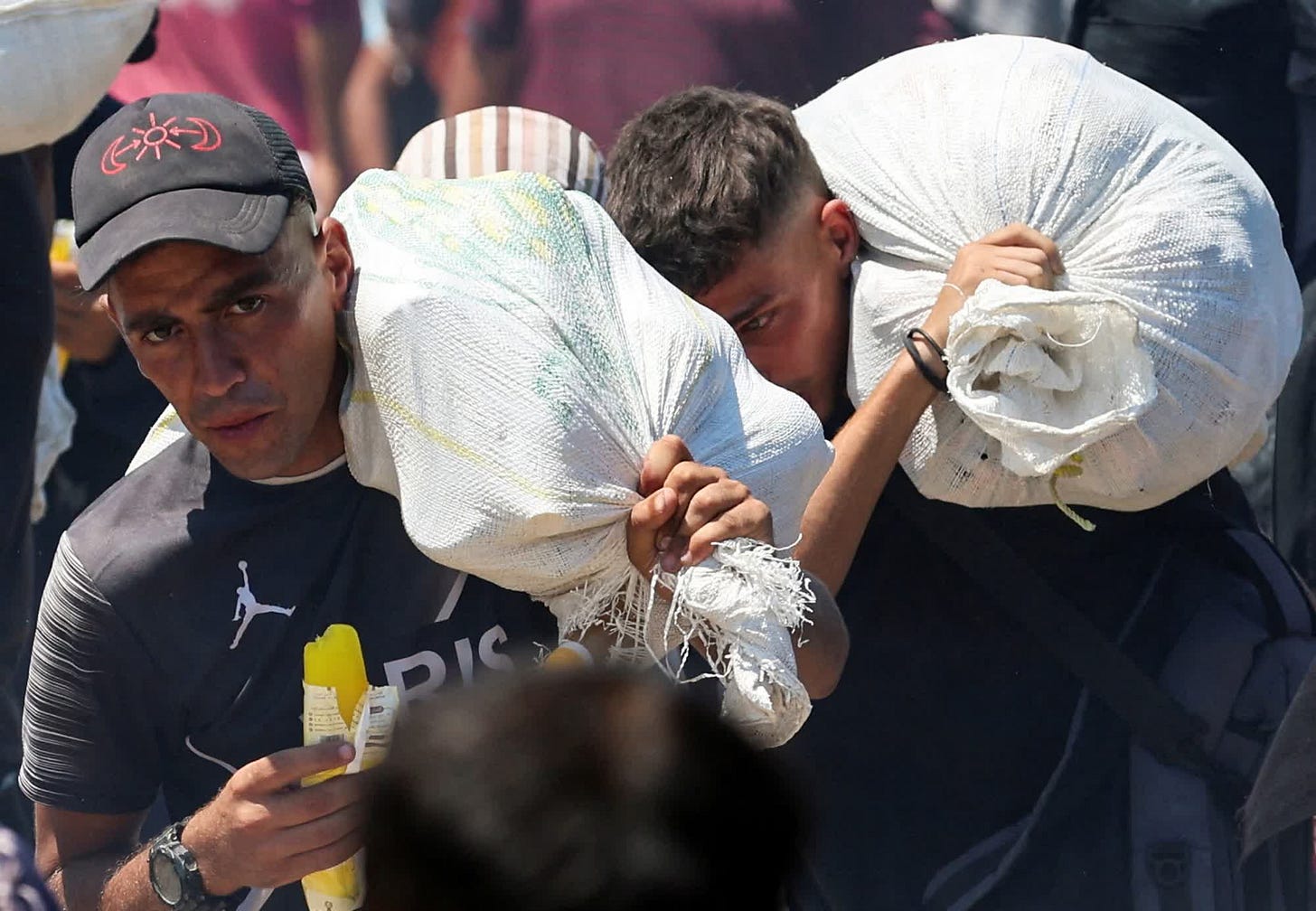Difficult Answers, Easy Targets: Gaza’s Humanitarian Crisis
(essay)
Last night, I scrolled through the comments on a musician friend’s Instagram post. The post itself was simple, sincere—a plea for food to reach hungry civilians in Gaza. A plea I wholeheartedly believe in. What followed in the comment thread left me stunned. Not just by its intensity, but by its ill-informed and hateful certainty: Jews who defend Israel…


